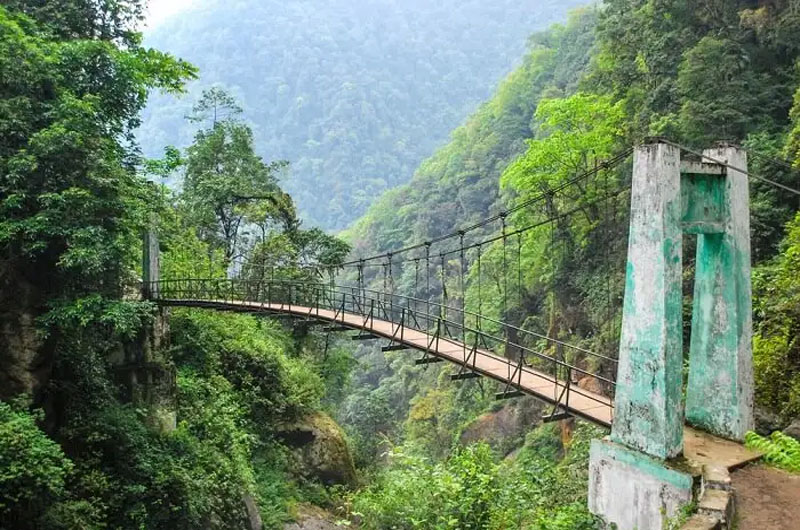
Kangchendzonga National Park: The Majestic Abode of the Third Highest Peak
Kangchendzonga National Park, located in the northeastern state of Sikkim, India, is a UNESCO World Heritage Site known for its stunning natural beauty and rich biodiversity. Named after the majestic Kangchendzonga Peak, the third highest mountain in the world, the park encompasses a vast area of 1,784 square kilometers. It features diverse landscapes ranging from lush valleys and dense forests to high-altitude glaciers and snow-clad peaks. This guide provides a comprehensive overview of Kangchendzonga National Park, highlighting its specialties, locality, best time to visit, and nearby restaurants and hotels.
Overview of Kangchendzonga National Park
Location and Geography
- Locality: North and West Sikkim, India
- Geographical Features:
- Covers an area of 1,784 square kilometers
- Spans altitudes from 1,829 meters to over 8,550 meters
- Characterized by alpine meadows, glaciers, snow-capped mountains, and dense forests
Specialty
- World Heritage Site:
- Designated as a UNESCO World Heritage Site for its outstanding universal value in terms of biodiversity and cultural significance
- Home to the sacred Kangchendzonga Peak and numerous other high-altitude peaks
- Biodiversity Hotspot:
- Rich in flora and fauna, including several endemic and endangered species
- Part of the Eastern Himalayas, one of the world’s biodiversity hotspots
Best Time to Visit
- Optimal Seasons: March to May and September to November
- Weather Conditions:
- Spring (March to May): Pleasant weather, blooming rhododendrons, and clear views
- Autumn (September to November): Cool and dry, with excellent visibility of the peaks
- Monsoon (June to August): Heavy rains, making trekking difficult and some areas inaccessible
- Winter (December to February): Extremely cold with heavy snowfall, suitable for experienced trekkers only
Wildlife and Flora
Fauna
- Mammals:
- Snow leopard
- Red panda
- Himalayan black bear
- Tibetan wild ass
- Musk deer
- Himalayan tahr
- Birds:
- Over 550 species including blood pheasant, Himalayan monal, and satyr tragopan
- Reptiles and Amphibians:
- Various species of snakes, lizards, and frogs
Flora
- Vegetation Types:
- Alpine meadows
- Rhododendron forests
- Temperate broadleaf and mixed forests
- Key species include rhododendrons, orchids, oaks, and pines
Zones and Activities
Main Zones
- Yuksom-Dzongri-Goechala Trek:
- Most popular trekking route in the park
- Offers breathtaking views of Kangchendzonga and other high peaks
- Tholung Valley:
- Remote area known for its pristine natural beauty
- Ideal for bird watching and exploring diverse flora and fauna
Activities
- Trekking:
- Various trekking routes including Yuksom-Dzongri-Goechala, Green Lake, and Singalila Ridge
- Guided treks available to explore the park’s diverse landscapes
- Wildlife Watching:
- Opportunities to spot endemic and endangered species
- Best spots include the alpine meadows and high-altitude areas
- Bird Watching:
- Guided bird watching tours
- Explore the rich avian diversity of the park
- Cultural Tours:
- Visit local monasteries and experience the unique culture of Sikkim
- Learn about the traditional practices and lifestyles of the indigenous communities
Nearby Restaurants and Hotels
Restaurants
- Taste of Tibet:
- Cuisine: Tibetan and Indian
- Specialties: Momos, thukpa, and local Sikkimese dishes
- Baker’s Café:
- Cuisine: Continental and local delicacies
- Specialties: Freshly baked goods, coffee, and sandwiches
Hotels
- The Elgin Mount Pandim:
- Luxury heritage hotel with stunning views of the mountains
- Amenities: Spa, multi-cuisine restaurant, and comfortable accommodations
- Norbu Ghang Resort:
- Scenic resort offering a close-to-nature experience
- Amenities: Guided tours, bird watching, and traditional performances
- Yuksom Residency:
- Comfortable lodging close to popular trekking routes
- Amenities: Guided treks, local cuisine, and nature walks
Conclusion
Kangchendzonga National Park is a sanctuary not only for its unique biodiversity but also for the cultural and spiritual significance it holds. Its diverse landscapes, rich wildlife, and breathtaking views of the Kangchendzonga peak offer an unparalleled experience for visitors. Whether you are an avid trekker, a wildlife enthusiast, or someone looking to explore the serene beauty of the Himalayas, Kangchendzonga National Park provides an unforgettable adventure. Plan your visit during the best seasons, and explore the park’s various zones and activities to fully appreciate the wonders of this majestic natural habitat.
